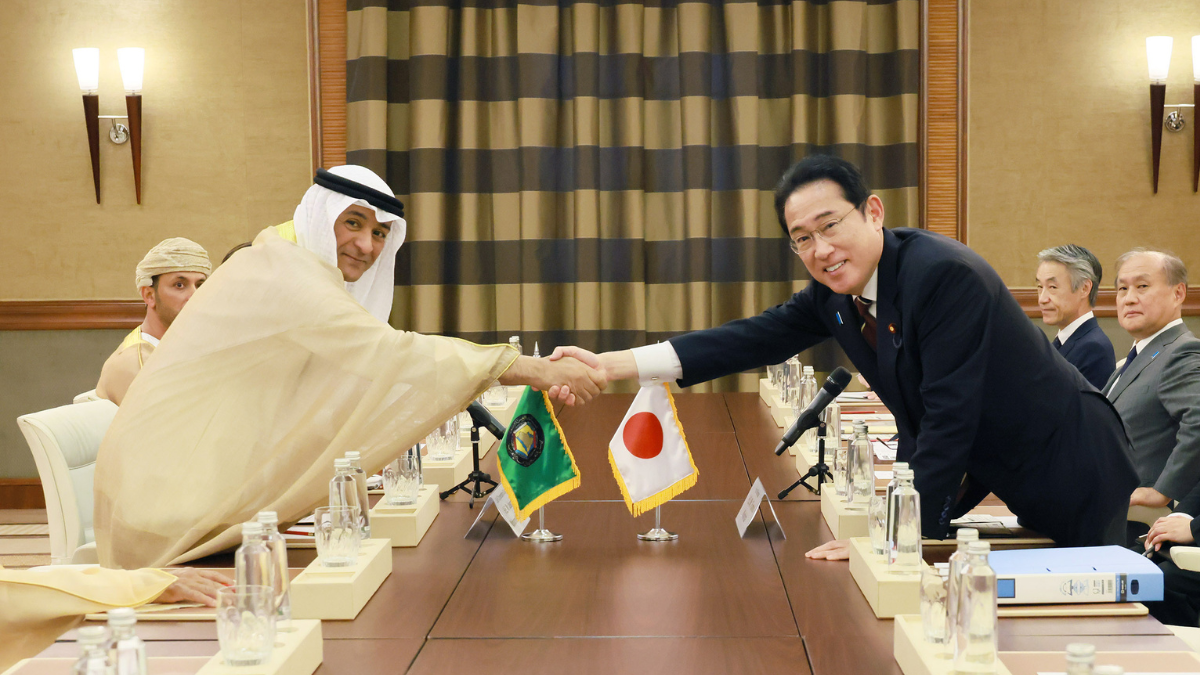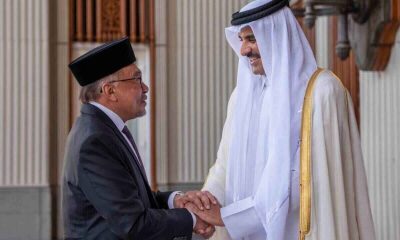Japan’s Foreign Minister, Hayashi Yoshimasa, met with the foreign ministers of the Gulf Cooperation Council (GCC) member nations in Saudi Arabia. The GCC consists of six oil and gas-rich countries: Saudi Arabia, the United Arab Emirates, Qatar, Kuwait, Oman, and Bahrain.
During the meeting, Minister Hayashi emphasized Japan’s interest in the GCC’s role in stabilizing the global oil market. Japan heavily relies on oil imports from GCC countries, accounting for over 90 percent of its crude oil supply.
Japan also expressed its support for the GCC members in their efforts to reduce carbon emissions and diversify their business activities beyond oil.
The ministers also discussed the possibility of resuming negotiations for a free trade agreement between Japan and the GCC countries.
The trade talks between the GCC and other countries have faced delays and challenges in the past due to various factors. These negotiations had been suspended for more than a decade but are now set to restart.
A free trade agreement would make it easier for Japan and the GCC nations to trade with each other, leading to economic benefits for both sides.
The ministers reaffirmed their commitment to cooperate across various areas according to a five-year action plan developed by Japan and the GCC. This plan outlines the strategic framework for enhancing collaboration in economic, commercial, and political spheres.
The resumption of talks for a free trade agreement is an important step in strengthening economic ties between Japan and the GCC.
Japan heavily relies on oil imports from the GCC countries, and the GCC nations are interested in diversifying their economies beyond oil and gas. A trade agreement with Japan could open up new markets and opportunities for the GCC countries.
6 Key Points of Japan-GCC Meeting
1. Oil Market Stabilization
Japan imports over 90% of its crude oil from GCC nations. Japan expressed its hope that the GCC will take a leading role in stabilizing the global oil market. This is crucial for Japan’s energy security and economic stability.
2. Support for Decarbonization
Japan also conveyed its intention to support GCC members in their efforts for decarbonization and diversifying their business sectors. Japan is aware of environmental sustainability and helping GCC nations to create cleaner and more diverse economies.
3. Free Trade Agreement
The ministers announced plans to resume negotiations next year for a free trade agreement (FTA) between Japan and GCC countries.
These negotiations had been suspended for over a decade (since 2009). An FTA would facilitate trade and economic cooperation between Japan and the GCC.
4. 5-Year Action Plan
Both sides confirmed their commitment to a 5-year action plan aimed at enhancing cooperation in various areas. This plan outlines specific goals and areas of collaboration, covering economic, political, and strategic aspects of their relationship.
5. Broadening Cooperation
Japan expressed its desire to expand cooperation with the GCC beyond traditional areas, indicating a willingness to deepen ties and address global issues together.
Also Read: UAE’s Omar Al Olama Named in Time’s 100 Influential People in AI
6. Trade Resumption
Oman’s Minister of State for Foreign Affairs, Sayyid Badr Albusaidi, emphasized the positive impact of resuming talks on the free trade agreement.






















